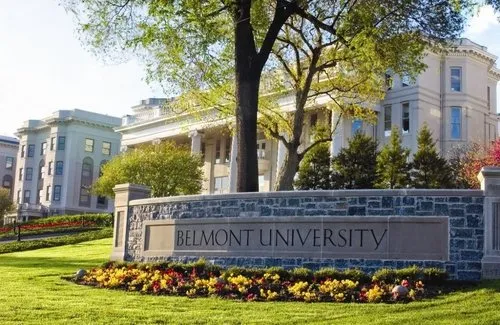Candidates are sought for multiple postdoctoral fellowship positions in the laboratory of Professor John T. Wilson at Vanderbilt University. Qualified applicants interested in Research Assistant Professor or Staff Scientist positions are also encouraged to apply. The Wilson Lab (www.wilsonlabvanderbilt.com) is working at the interface of engineering and immunology to pioneer a next generation of immunotherapies. Current projects are supported by several multi-year grants focused on the development of molecularly engineered therapeutics for cancer immunotherapy and infectious disease vaccines. Successful applicants will have the opportunity to lead the development of new immunotherapeutic technologies by bringing together expertise in chemistry, nanotechnology, pharmaceutical science, and immunobiology. The ideal candidate will have experience in one of two areas and meet the following qualifications:
Immunology and/or Immunotherapy
-
- Ph.D. in Immunology or related field (Molecular/Cell Biology, Cancer Biology, Biomedical Engineering).
- Extensive experience with molecular/cell biology/immunology techniques and experimental design, including characterization of immune responses in mouse models, is required.
- Publications in immunology, immunotherapy, or cancer biology are highly desirable.
Chemistry, Molecular Engineering, and Biomaterials
-
- Ph.D. in Chemistry (e.g., Organic Chemistry, Pharmaceutical Chemistry, Polymer Chemistry), Engineering (e.g., Chemical, Biomedical, Materials Science & Engineering, Molecular), or related field. Expertise in polymer chemistry is highly desirable.
- A strong publication record in polymer chemistry, materials science, biomaterials, nanomedicine, drug delivery, or related disciplines.
- Experience with organic synthesis, polymer design and synthesis, nanoparticle synthesis/characterization, bioconjugate chemistry, protein engineering, nucleic acid and/or peptide synthesis is required.
- Experience with in vitro and in vivo evaluation of biomaterials and drug delivery systems is highly desirable.
All candidates are expected to:
-
- Demonstrate strong oral and written communication skills, and the ability to organize material for seminars, journal publications, and grant submissions.
- Be able to work well in a multidisciplinary, diverse, and collaborative research environment.
- Be highly motivated to publish rigorous and high-impact work.
- Have a genuine and infectious excitement for science, innovation, and creative thinking.
You will receive training in the cutting-edge and fast-developing fields of immunoengineering and immunotherapy, and join a fun, dynamic, and interdisciplinary multi-investigator research team comprising chemists, engineers, immunologists, cancer biologists, and translational scientists. Our lab is located in the new, state-of-the-art Engineering and Science Building (ESB) and we are a diverse, supportive, and inclusive group; we care deeply about our trainees and make their success our top priority, independent of their background, experiences, preferences, or beliefs. You will also benefit from additional expertise and resources available on the compact and highly collaborative Vanderbilt campus, including the Vanderbilt Institute of Nanoscale Science and Engineering, the Vanderbilt-Ingram Cancer Center, the Vanderbilt Institute for Infection, Immunology and Inflammation, and the Vanderbilt University Medical Center, to name only a few. The close proximity of diverse research expertise is a powerful contributor to the success of interdisciplinary and translational research at Vanderbilt, and will provide you with rich opportunities for research, funding, and career networking. Finally, Vanderbilt is located in Nashville, Tennessee, a thriving and growing city with major cultural, professional, and athletic institutions. Nashville, known as “Music City USA,” offers not only a world-class music scene, but also excellent food, breweries, museums, outdoor activities, and weather.
Compensation will be at or above NIH postdoctoral guidelines, and will include a competitive benefits and retirement package offered by Vanderbilt University. Postdoctoral researchers will receive a renewable, annual contract with the expectation of completing 2-4 years of training. Flexibility to pursue research in personal areas of interest, to apply for grants and fellowships, and to develop independent research directions will be encouraged. Interested candidates should assemble an application in a single PDF file consisting of a i) cover letter, ii) curriculum vitae (including a complete list of publications), iii) contact information for three references, and iv) two first author manuscripts that have been published or accepted for publication. The cover letter should include a description of the candidate’s relevant research experience, research interest, goals and expectations for the position, and preferred start date. The application should be e-mailed to Prof. John T. Wilson at john.t.wilson@vanderbilt.edu using the subject line “Postdoctoral position in the Wilson Lab.”


Thank you so much for writing this post in detail. I need some details about bio fire. Can you help me with that?